
Natural Farming

Natural Farming
”Give me spots on my apples but leave me the birds and the bees” – Joni Mitchell
Located in the midst of an apple and cherry orchard, which spreads just over an acre of land, the Shilaroo Project seeks to revive the land, depleted partly due to the use of pesticides and partly due to neglect. This was one of the biggest challenges for us since our knowledge of correct and regenerative agricultural practices was very sparse. We started out by consulting experienced local farmers to understand the locally adopted practices and what works. We realized very soon that most farmers were using chemicals and growing one kind of produce, relying heavily on apples. These were methodologies we knew and understood that we wanted to shift from our farm.
Our next step was learning and adopting natural farming techniques and the opportunity arrived soon enough, in the form of a workshop by the revolutionary agricultural activist Subhash Palekar, organized by the Horticulture University in Solan, Himachal Pradesh.
Born in the Vidarbha region of Maharashtra in India, Palekar after acquiring Bachelors Degree in Agriculture began working with tribals and searching for an alternative to chemical farming. He discovered that there is a self-developing, self-nourishing and totally self-reliant natural system in the forest. He studied that natural system and applied his discoveries on his farm. After years of verified research work, he formulated a technique which he now calls – Subhash Palekar Natural Farming.
Subhash Palekar became our role model for our farming ambitions at Shilaroo. Coming away greatly inspired at the end of the 3-day workshop, we began immediately putting to test Palekar’s farming techniques. In 2018, the state of Himachal Pradesh officially adopted a Subhash Palekar natural farming model for the first time with a budgetary allocation of Rs 25 crore for the same fiscal. In addition to this, we also learned and implemented the Miyawaki method of planting on the farm, imparted to us at a workshop conducted by the Alaap Foundation, Uttarakhand.
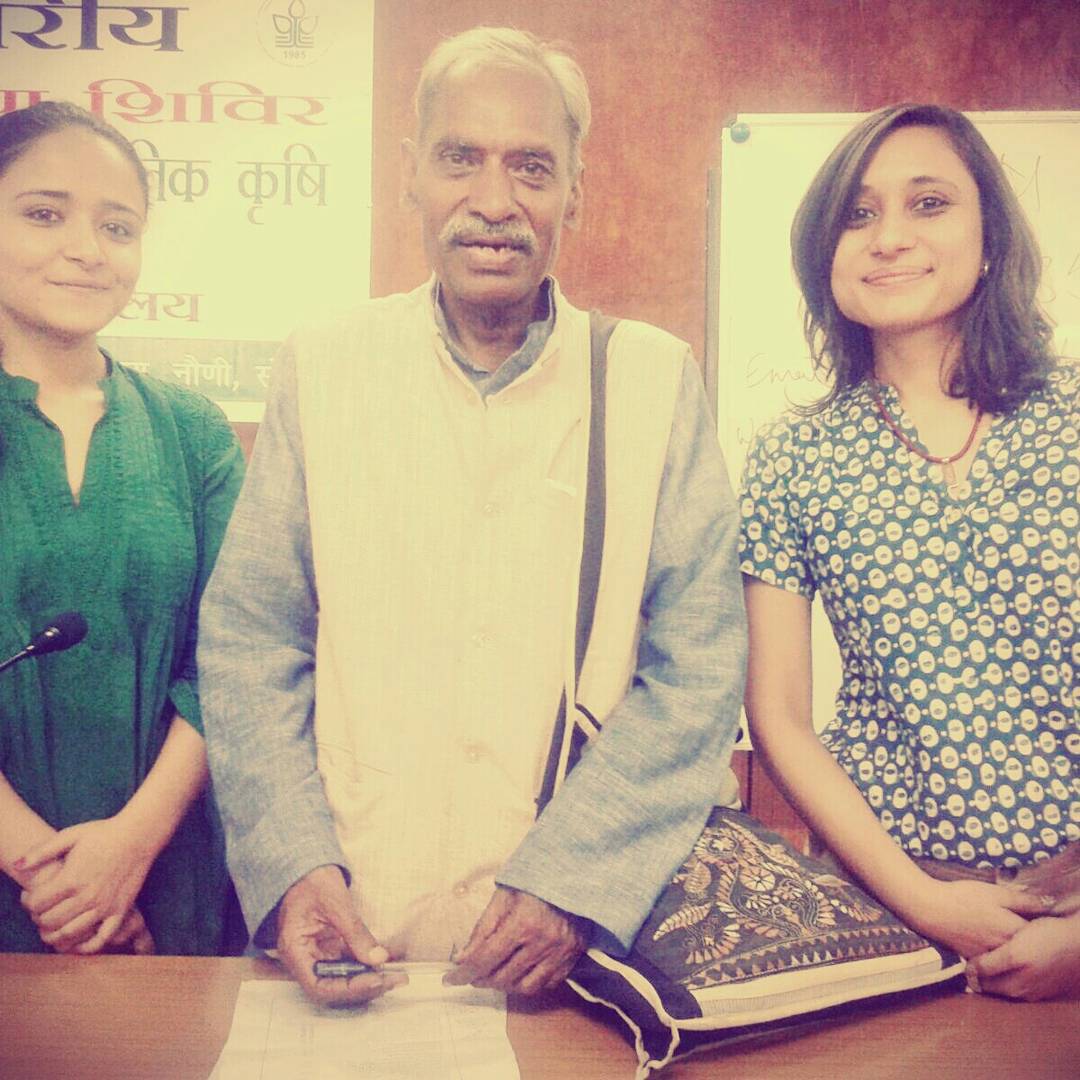
Learnings on the Farm
In working with the land the most important learning has been the need to generate and maintain optimum soil health. To aid this process we employ techniques such as mulching, using natural bio-fertilizers, pesticides, and insecticides, all prepared at the Shilaroo Project using Subhash Palekar’s techniques of Natural Farming. Excellent soil testing results proved that this method greatly enhanced plant as well as soil health. For new plantations, we now employ the Miyawaki method of planting and ensure that we dig the ground up about 1 foot first, mix the earth with hay or dried up grass and then add it back along with indigenous cow manure and the plant itself. This method has specifically proven to increase the rate of growth for the produce phenomenally.
Farm Report
Primarily an apple orchard spread over an acre of land, The Shilaroo Project farm follows the method of terrace farming, owing to its mountainous terrain. There are four terraces on which are planted an assortment of fruits, seasonal vegetables, herbs, and flowers. This is done following the system of inter cropping, which provides a varied yield through most of the year, except during the snow season and also helps maintain soil health.
Supportive Farming Techniques
We have established a rainwater harvesting system, enabling us to store and also, distribute rainwater back into the earth. This was achieved by installing basic metal based trays on the roof of our house. We can currently store up to 40,000 ltr of rainwater. A Greywater unit has been engineered on the farm, where water from the kitchen and bathrooms (excluding toilets) goes through a filtration process and made available to the land for farming. Present across the farmland are compact water bodies which help in sustaining good soil health and biodiversity. Also, on the property, solar energy driven back up, via solar panels, have been installed, as electricity can be fickle during certain seasons.
Adhering to these practices we have noticed how the land has become exponentially more biodiverse, with the increase in the number of butterflies, bees, microorganisms in the soil etc. accompanied with a healthier crop yield at Shilaroo, egging us on to continue with these farming techniques with increased fervor.
Fruit Trees
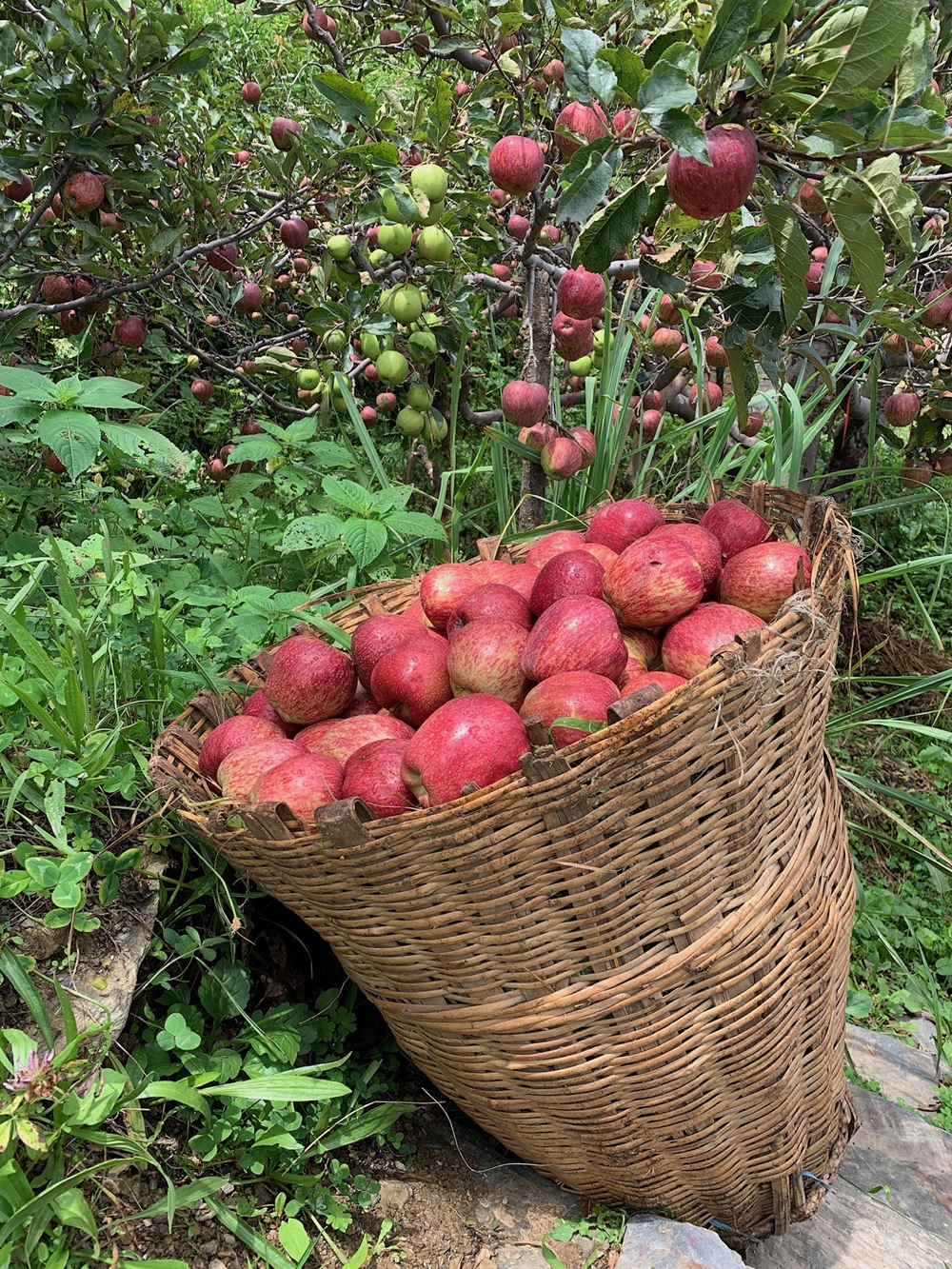
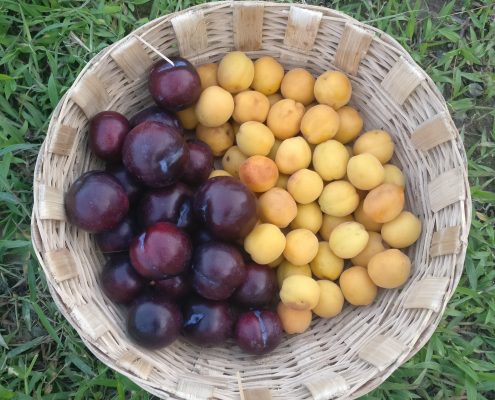

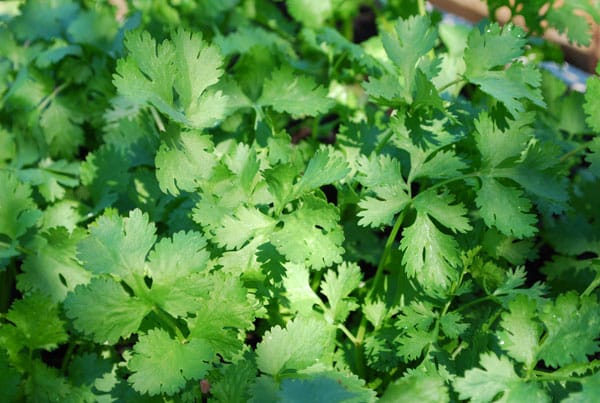
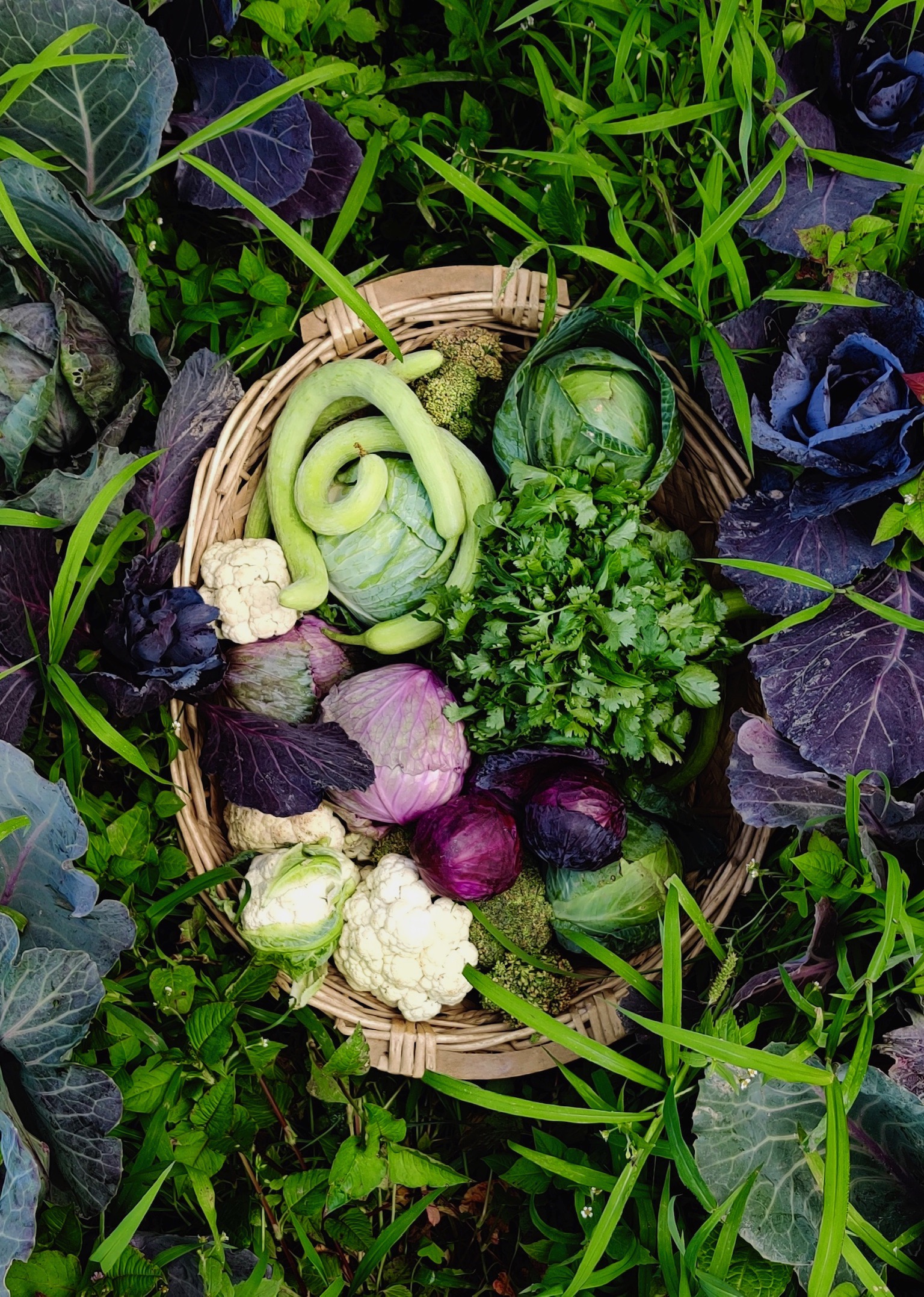
Herbs
Vegetables

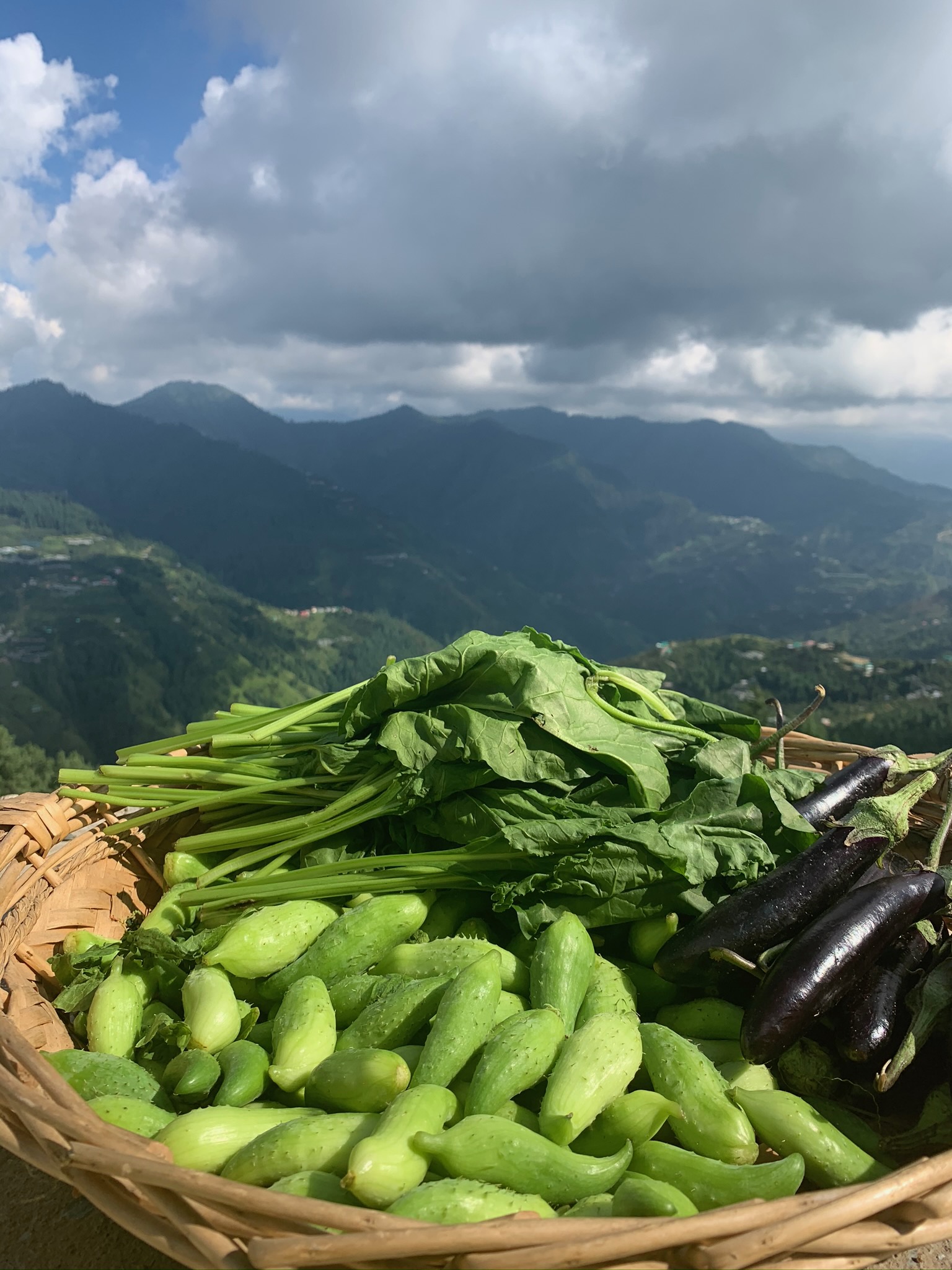
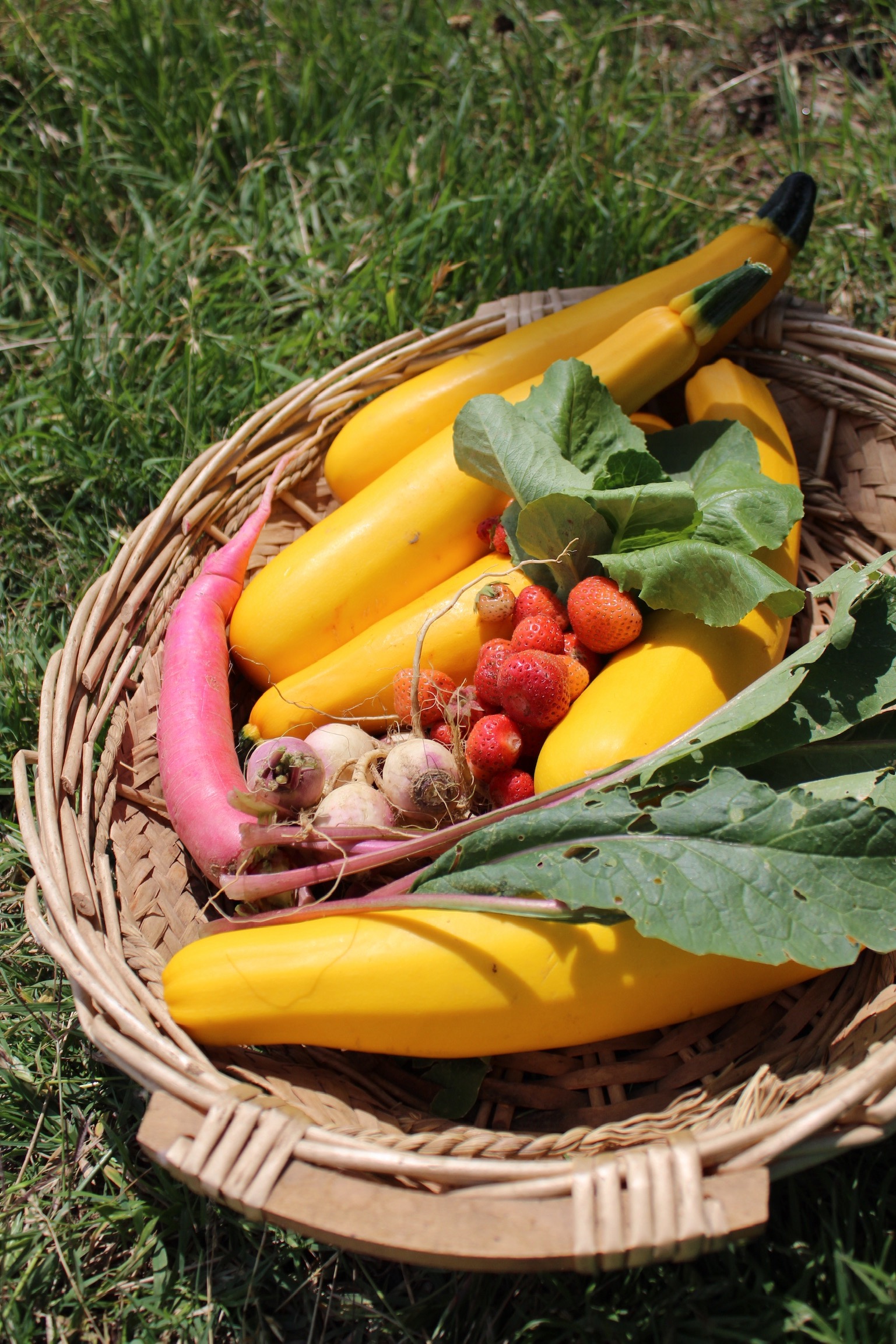
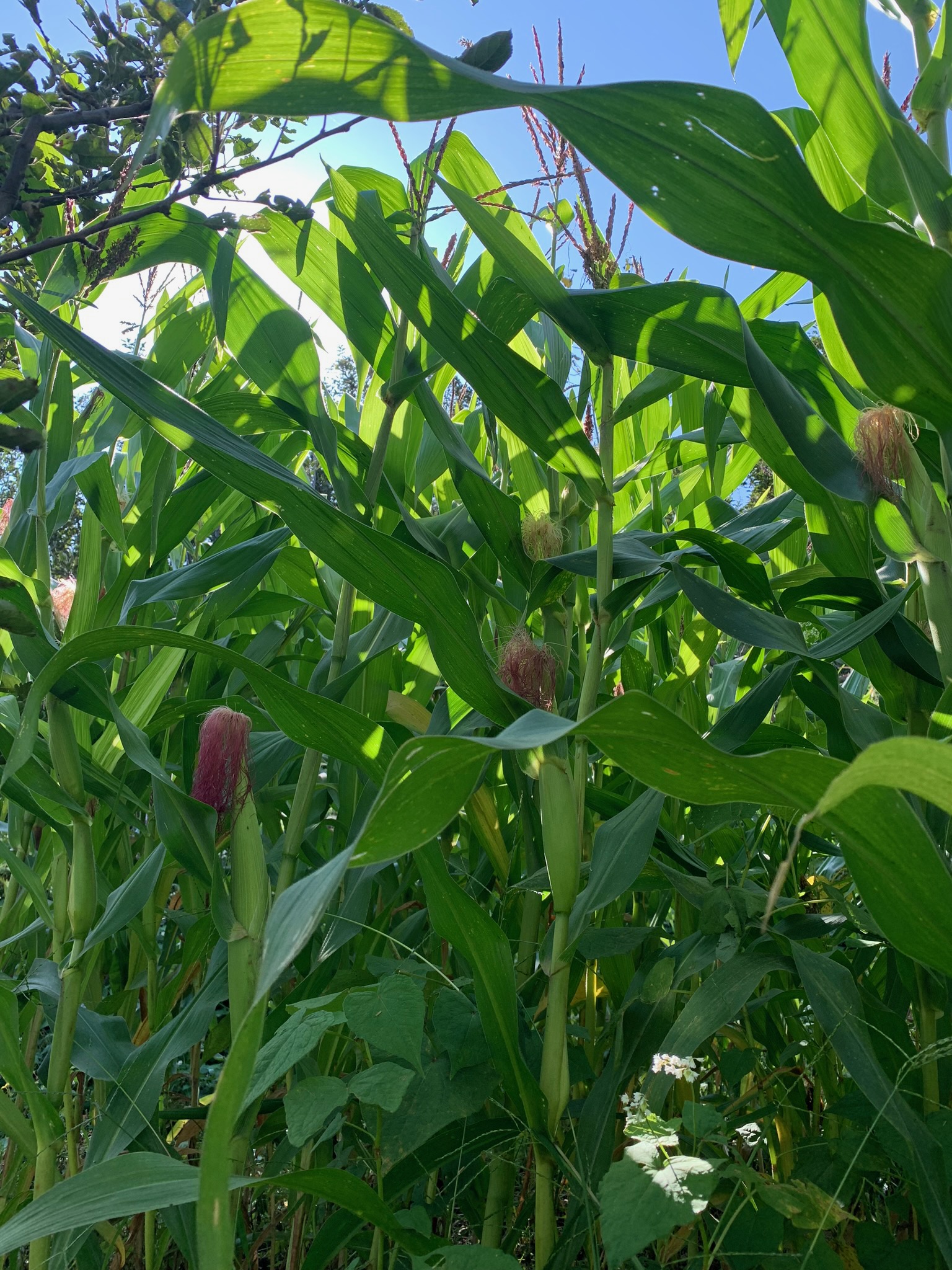
© Copyright - The Shilaroo Project. All rights reserved.
Made with ❤️ by Algotics